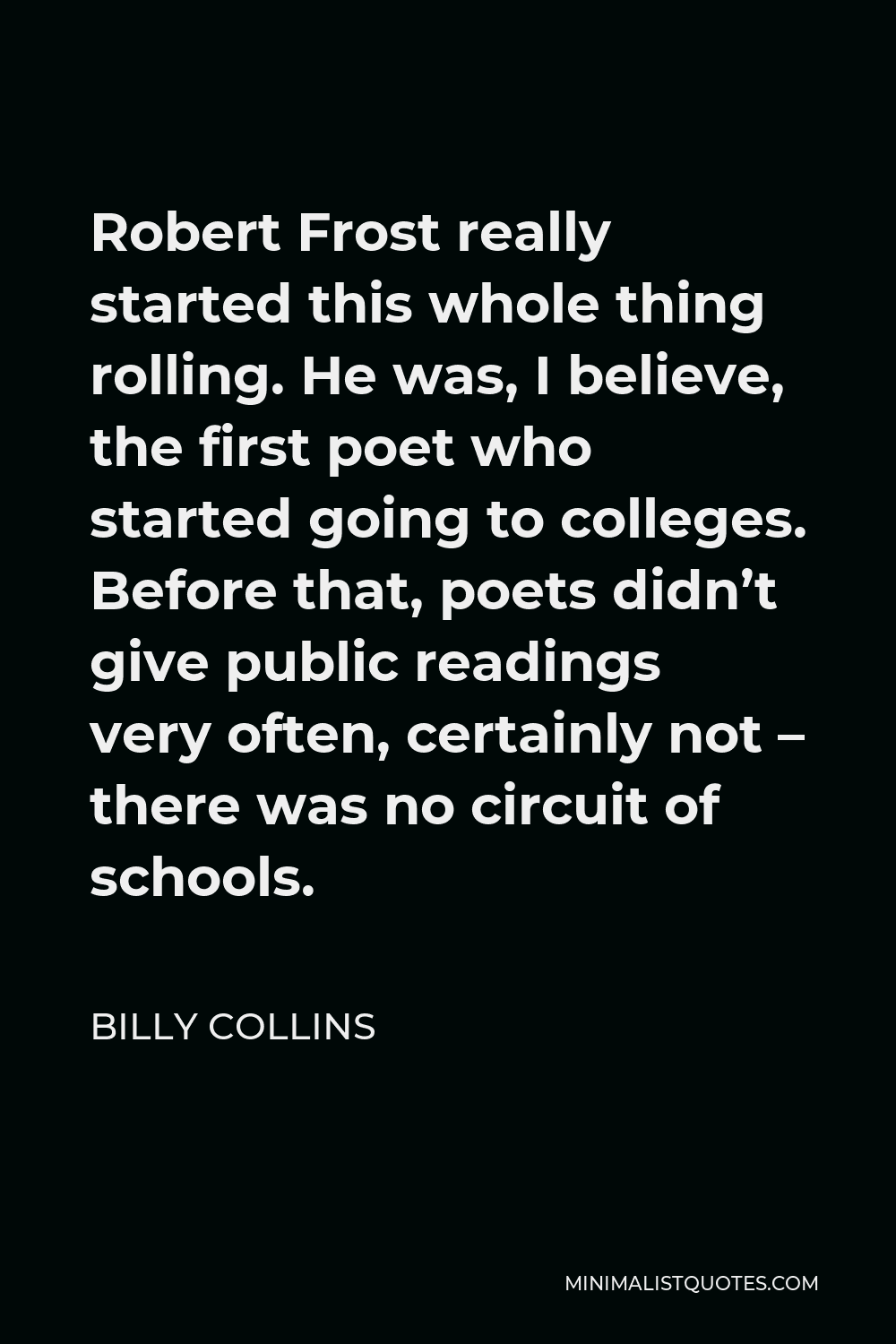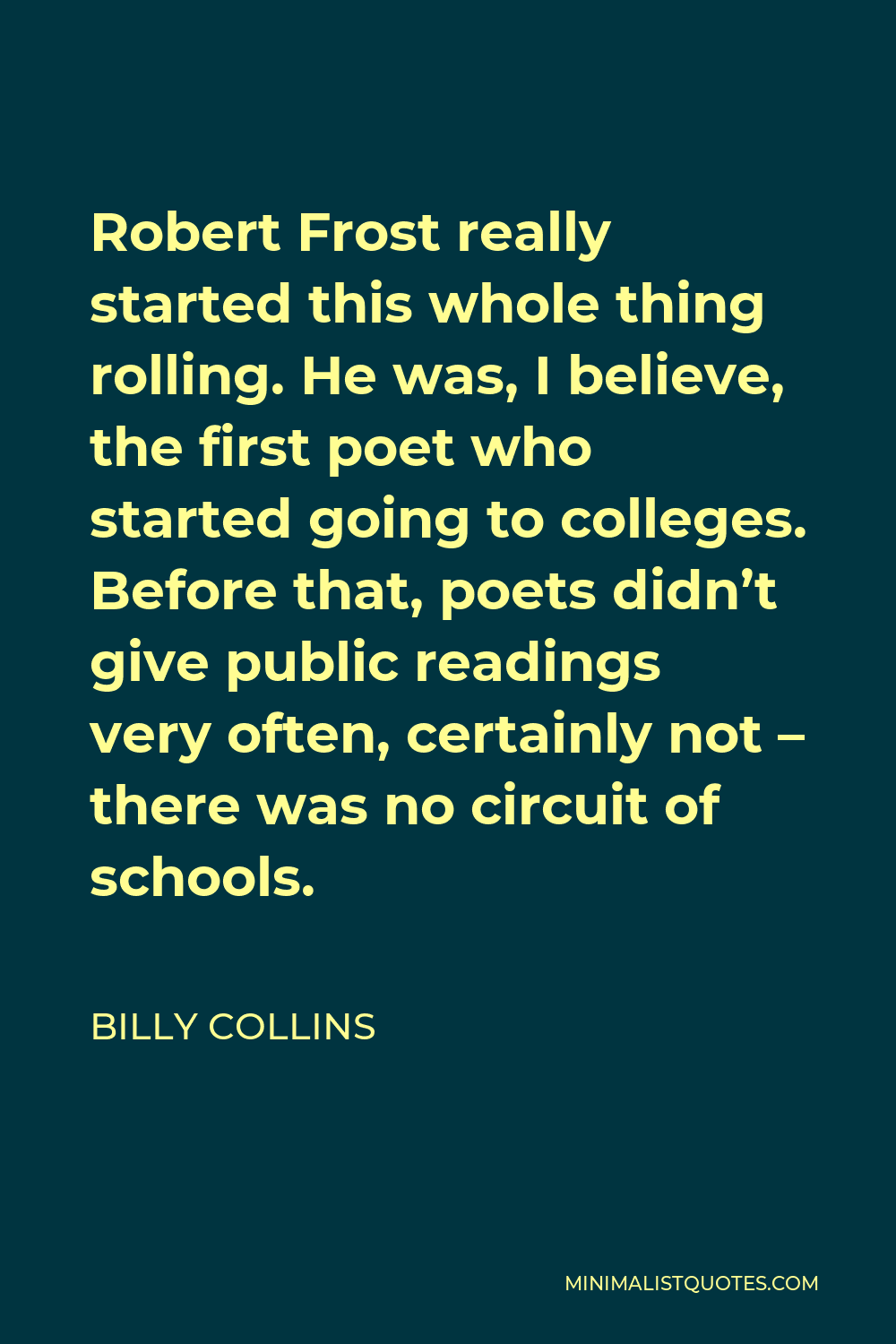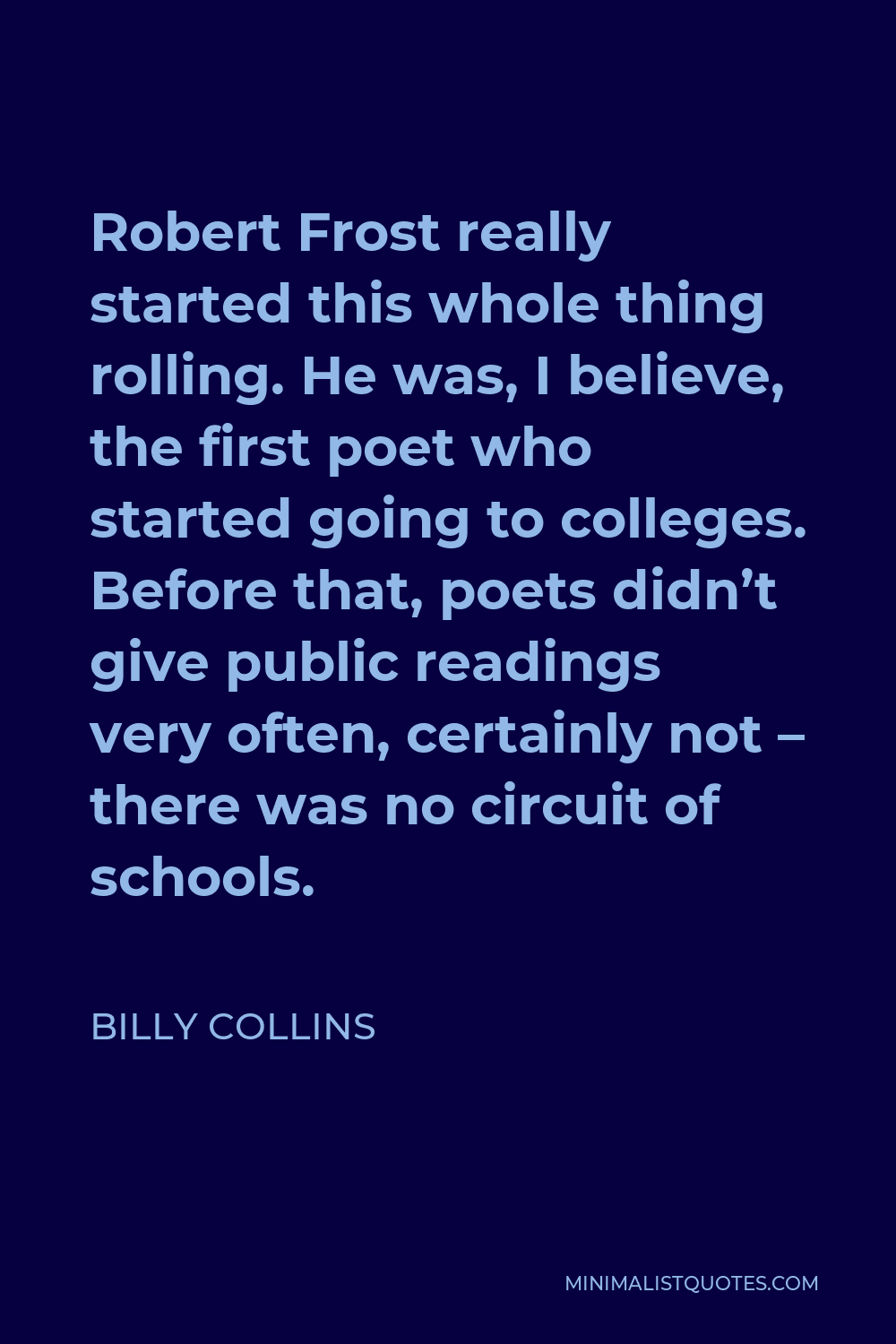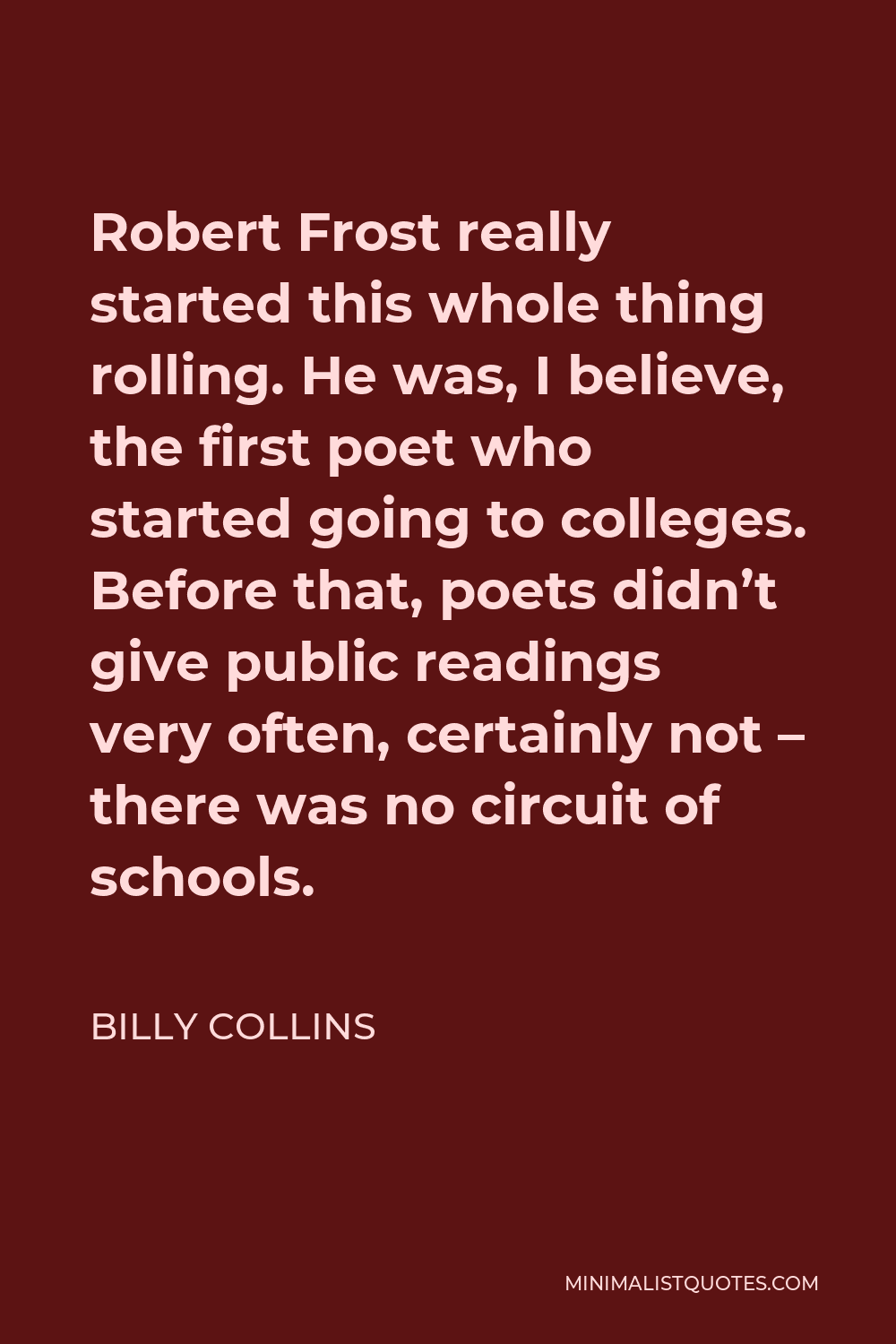I don’t know if anyone’s reading it, but poets are still flying around the country going from lectern to lectern.That circuitry has become very well-established.
BILLY COLLINSRobert Frost really started this whole thing rolling. He was, I believe, the first poet who started going to colleges. Before that, poets didn’t give public readings very often, certainly not – there was no circuit of schools.
More Billy Collins Quotes
-





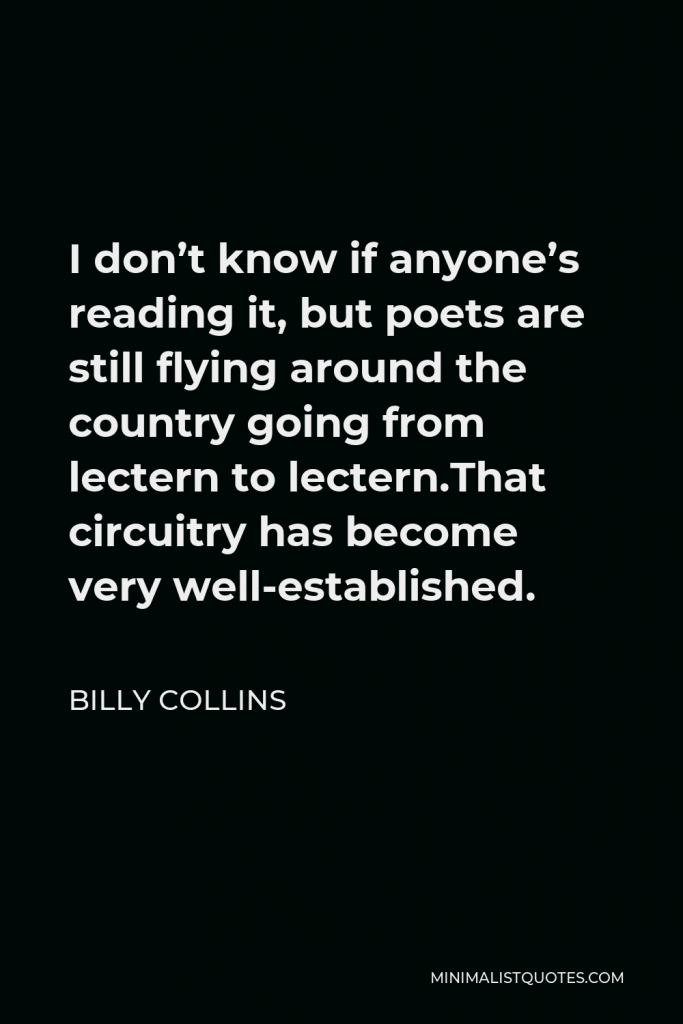

-





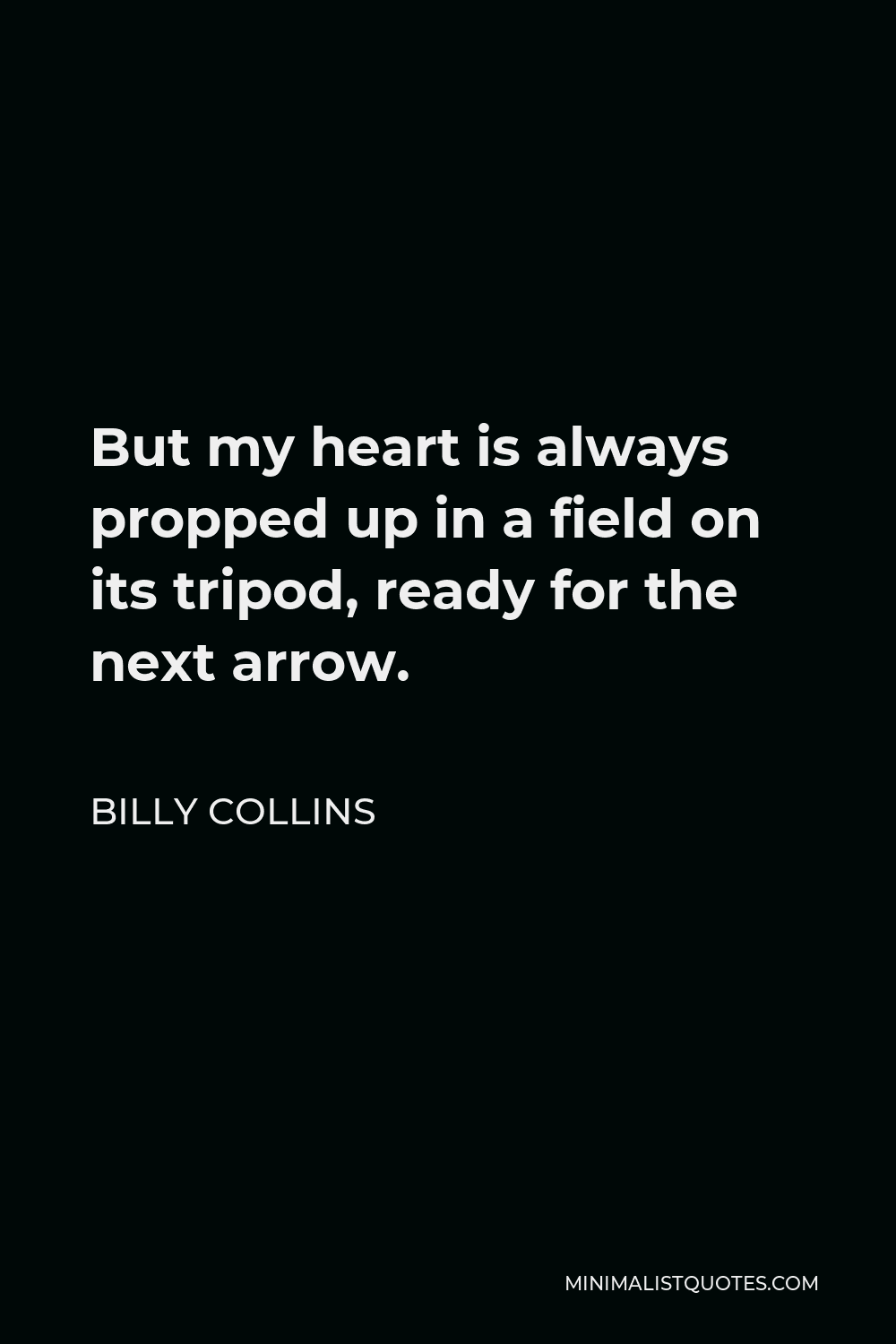
But my heart is always propped up in a field on its tripod, ready for the next arrow.
BILLY COLLINS -





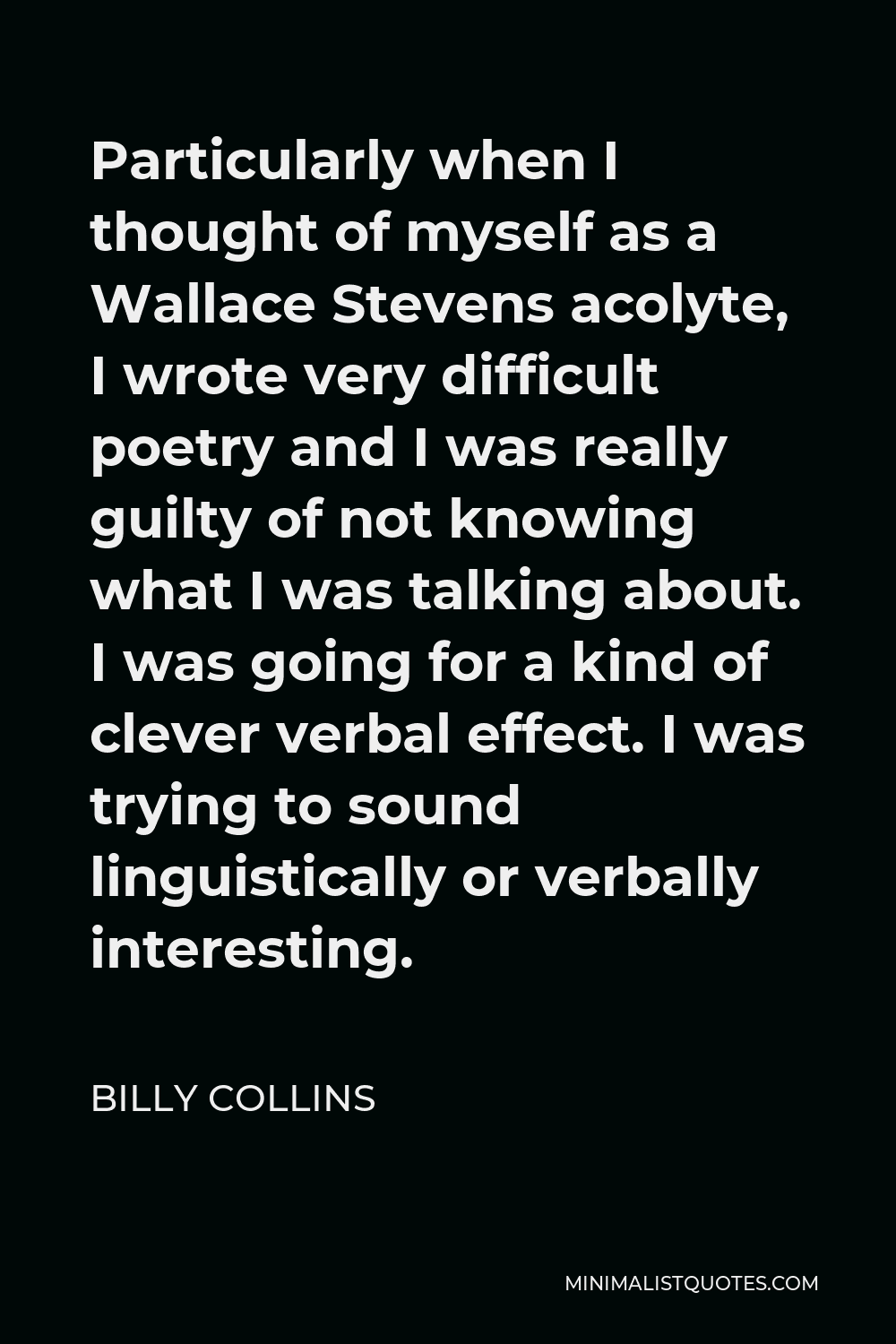
Particularly when I thought of myself as a Wallace Stevens acolyte, I wrote very difficult poetry and I was really guilty of not knowing what I was talking about. I was going for a kind of clever verbal effect. I was trying to sound linguistically or verbally interesting.
BILLY COLLINS -





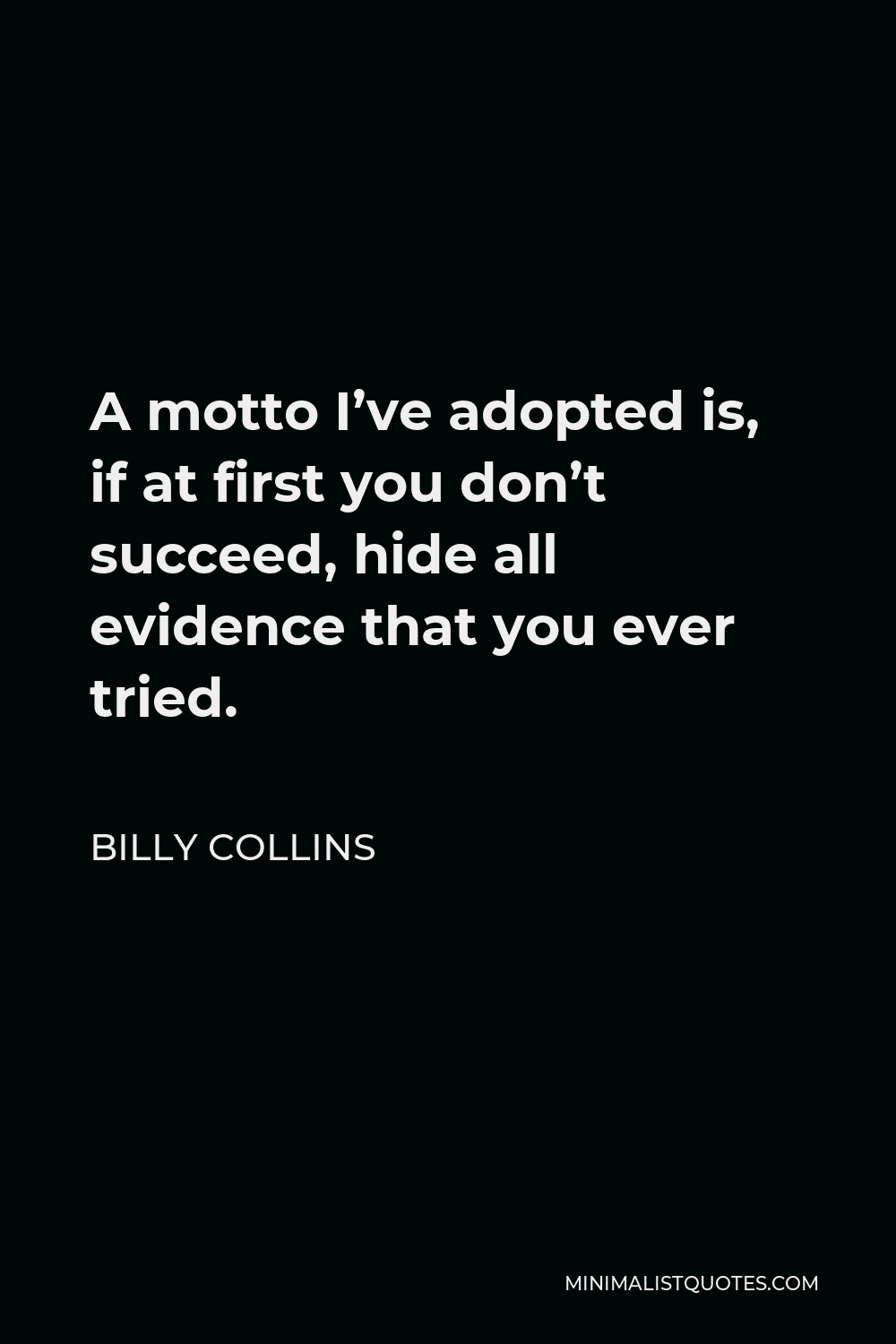
A motto I’ve adopted is, if at first you don’t succeed, hide all evidence that you ever tried.
BILLY COLLINS -





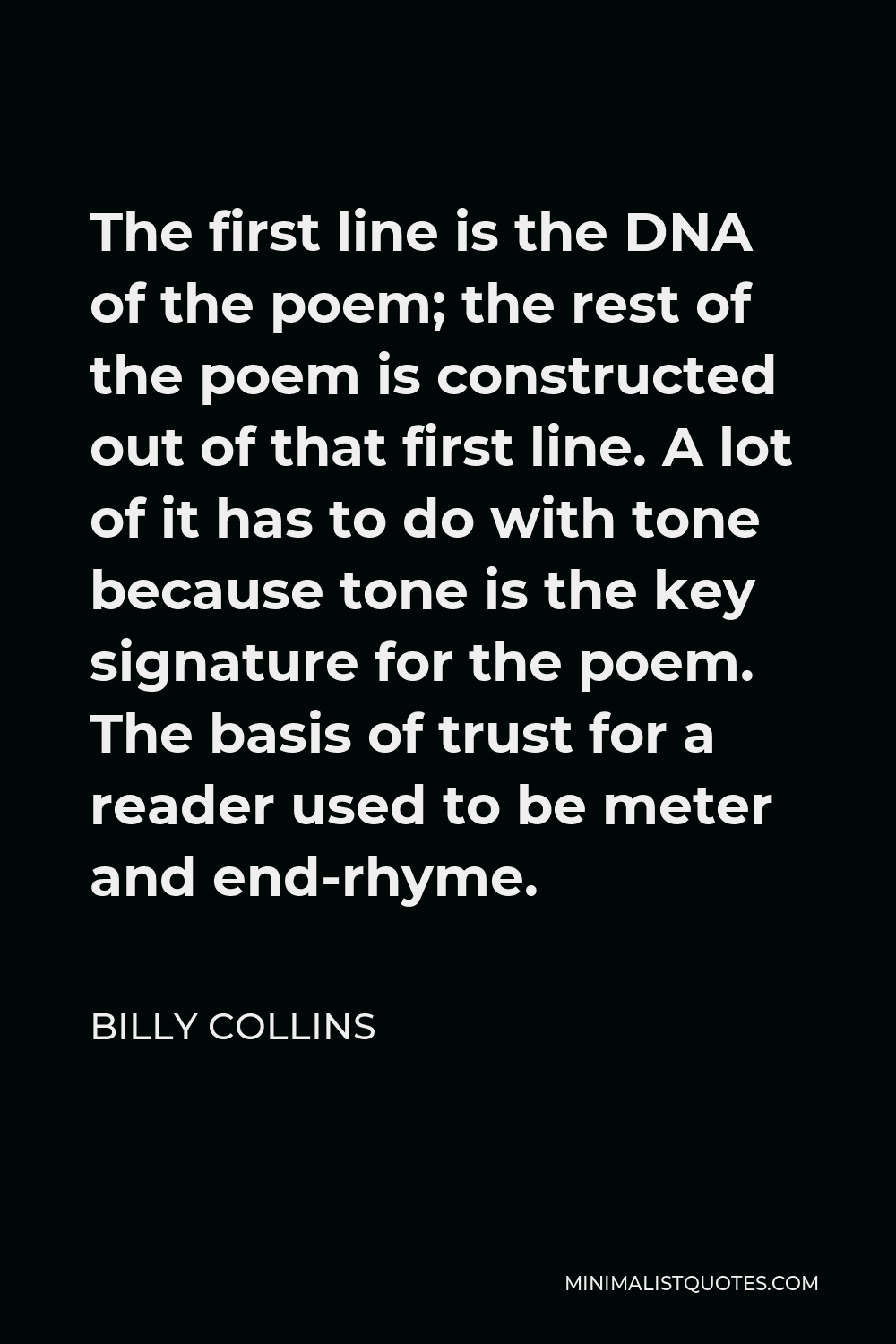
The first line is the DNA of the poem; the rest of the poem is constructed out of that first line. A lot of it has to do with tone because tone is the key signature for the poem. The basis of trust for a reader used to be meter and end-rhyme.
BILLY COLLINS -





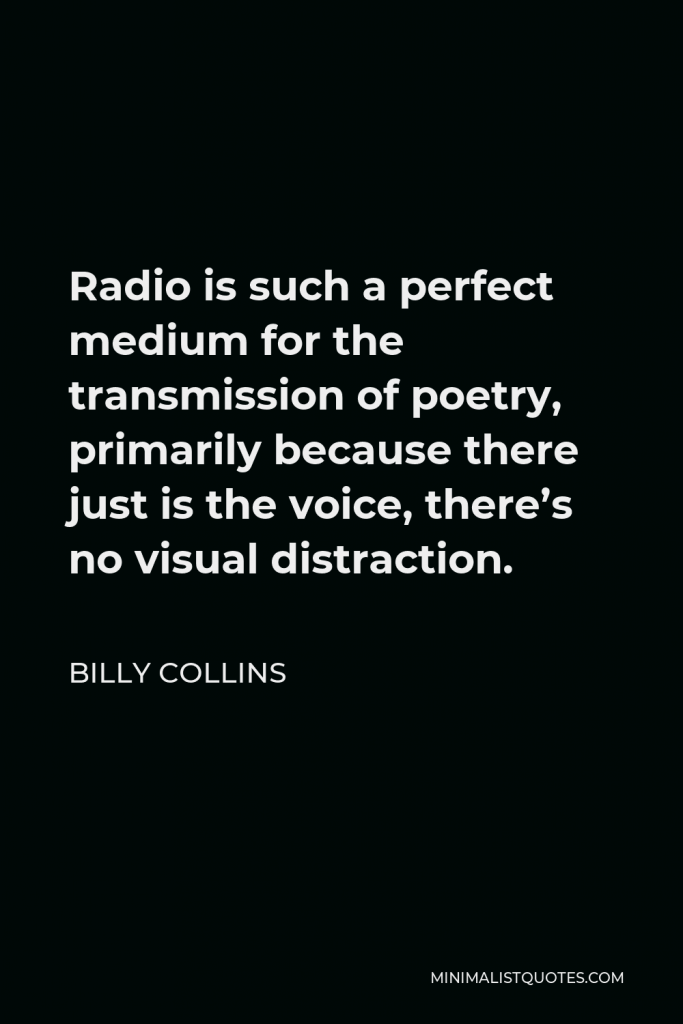

Radio is such a perfect medium for the transmission of poetry, primarily because there just is the voice, there’s no visual distraction.
BILLY COLLINS -





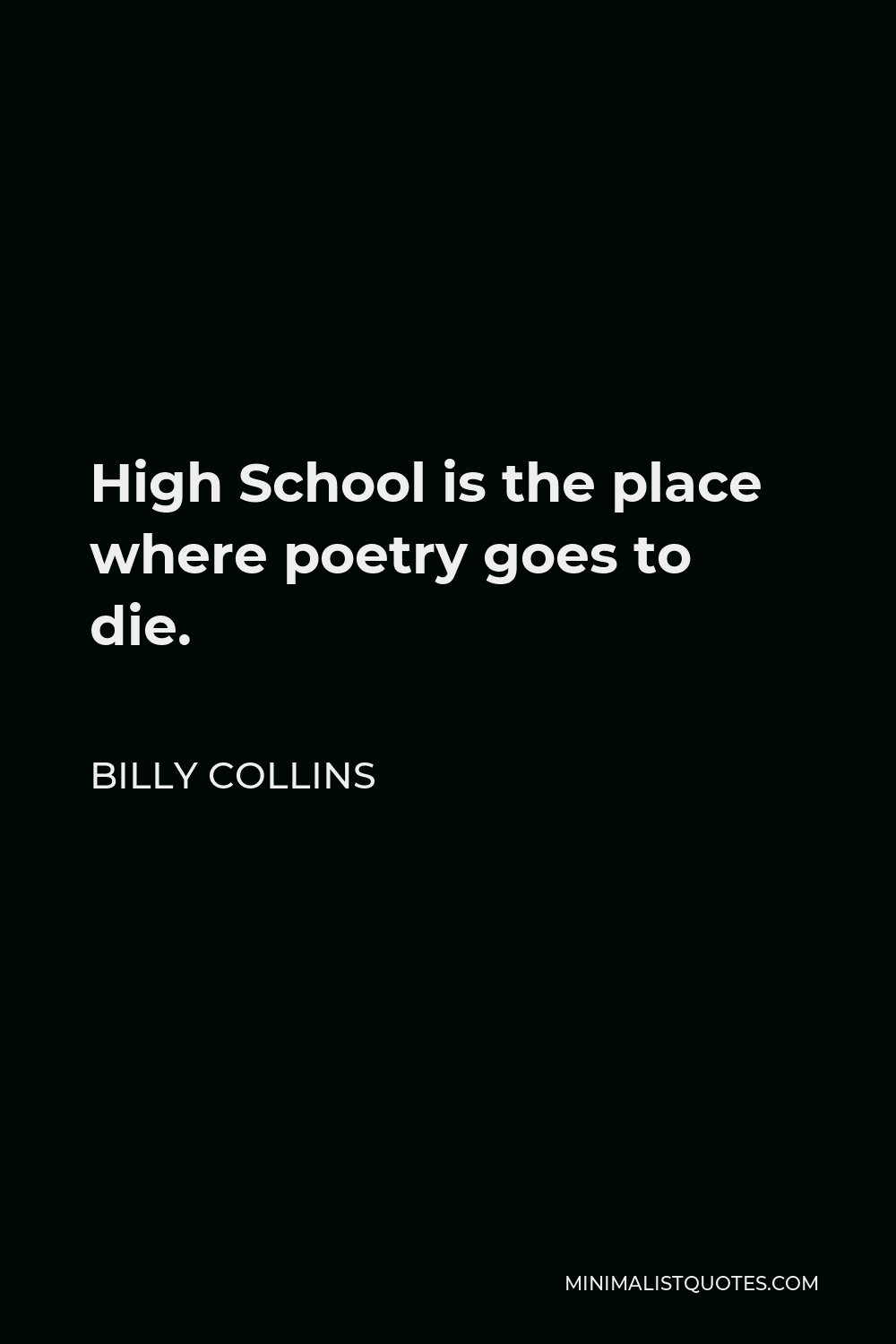
High School is the place where poetry goes to die.
BILLY COLLINS -





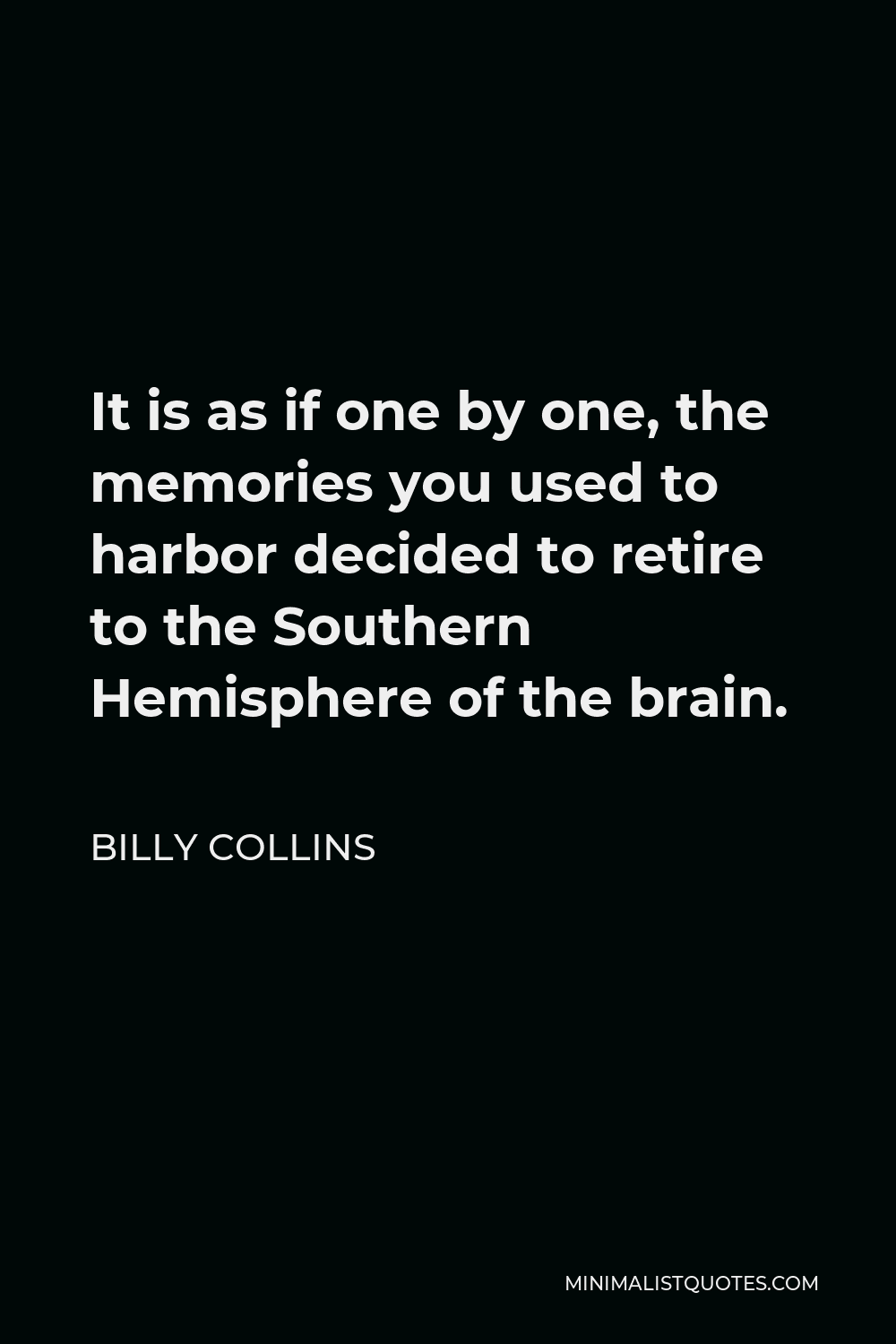
It is as if one by one, the memories you used to harbor decided to retire to the Southern Hemisphere of the brain.
BILLY COLLINS -





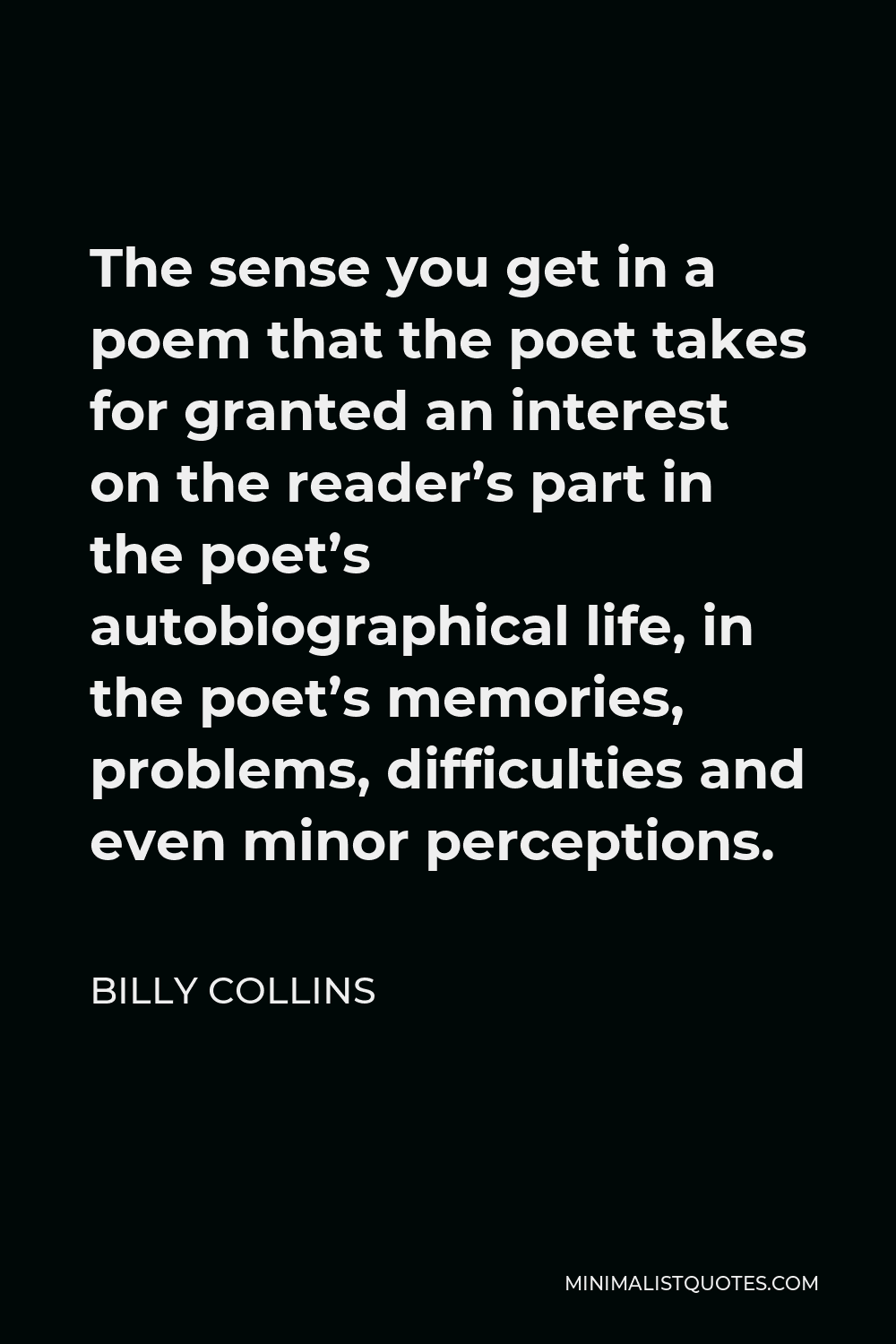
The sense you get in a poem that the poet takes for granted an interest on the reader’s part in the poet’s autobiographical life, in the poet’s memories, problems, difficulties and even minor perceptions.
BILLY COLLINS -






Some difficulty is warranted and other difficulty I think is gratuitous. And I think I can tell the difference. There are certainly very difficult poets that I really enjoy reading.
BILLY COLLINS -





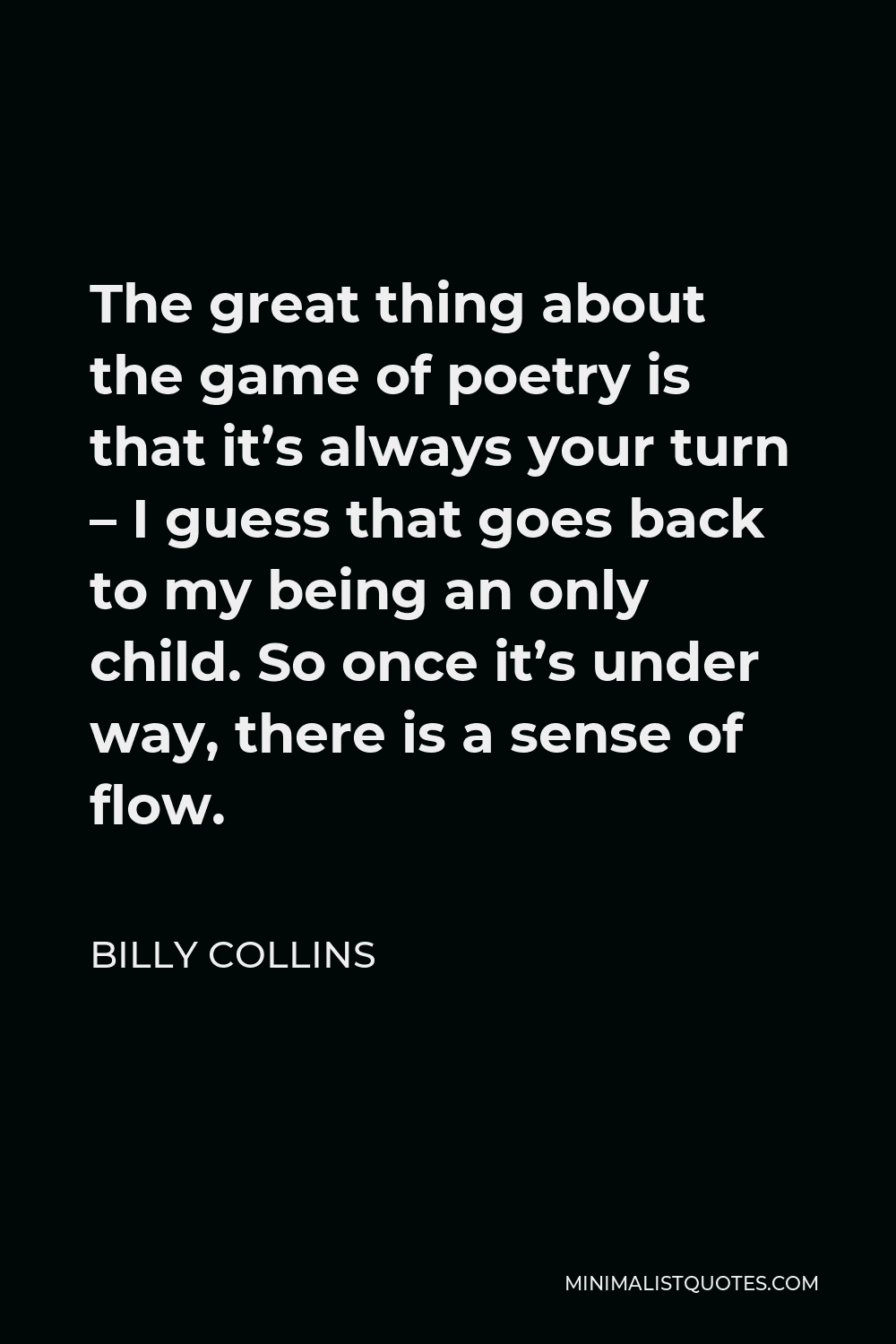
The great thing about the game of poetry is that it’s always your turn – I guess that goes back to my being an only child. So once it’s under way, there is a sense of flow.
BILLY COLLINS -





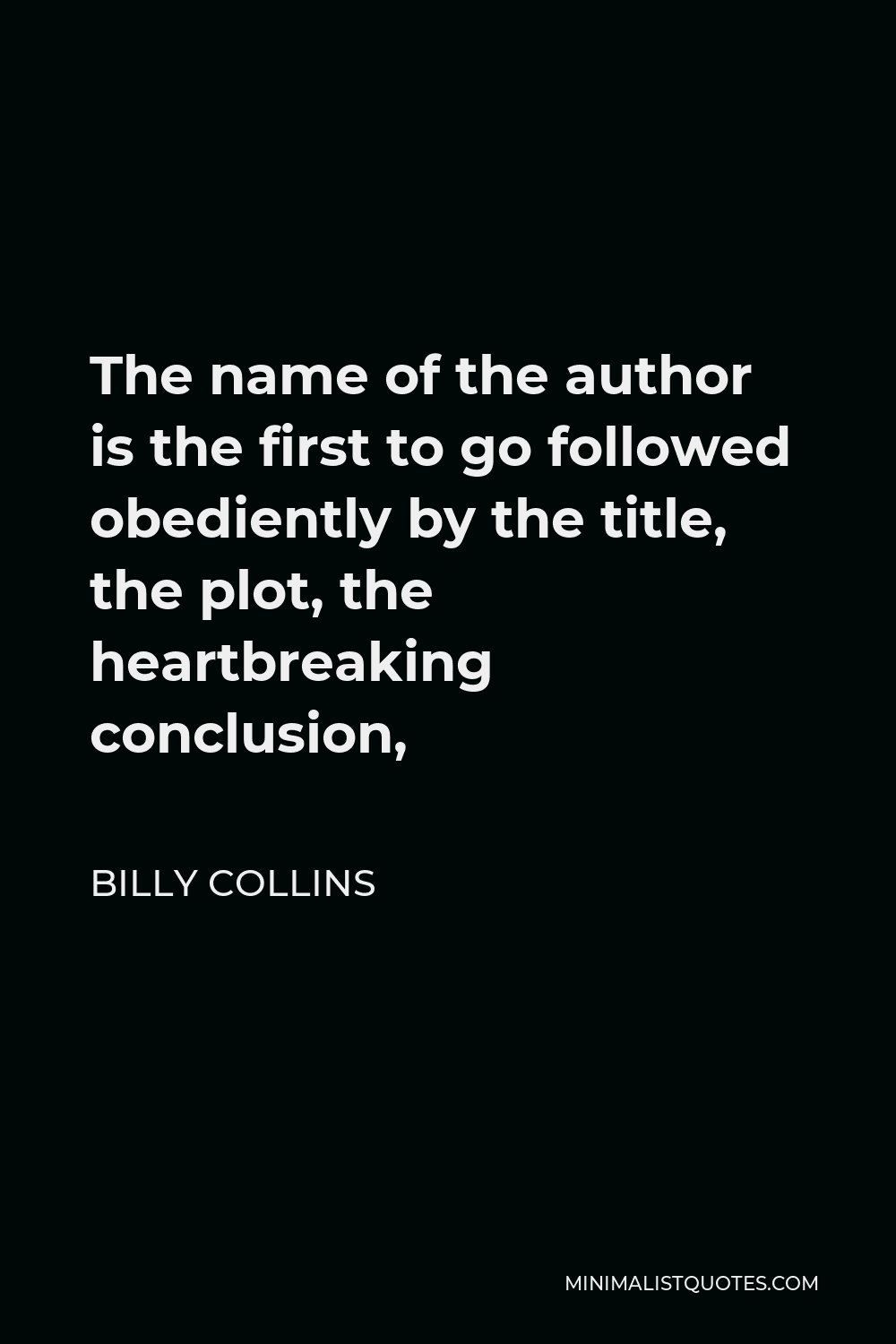
The name of the author is the first to go followed obediently by the title, the plot, the heartbreaking conclusion,
BILLY COLLINS -





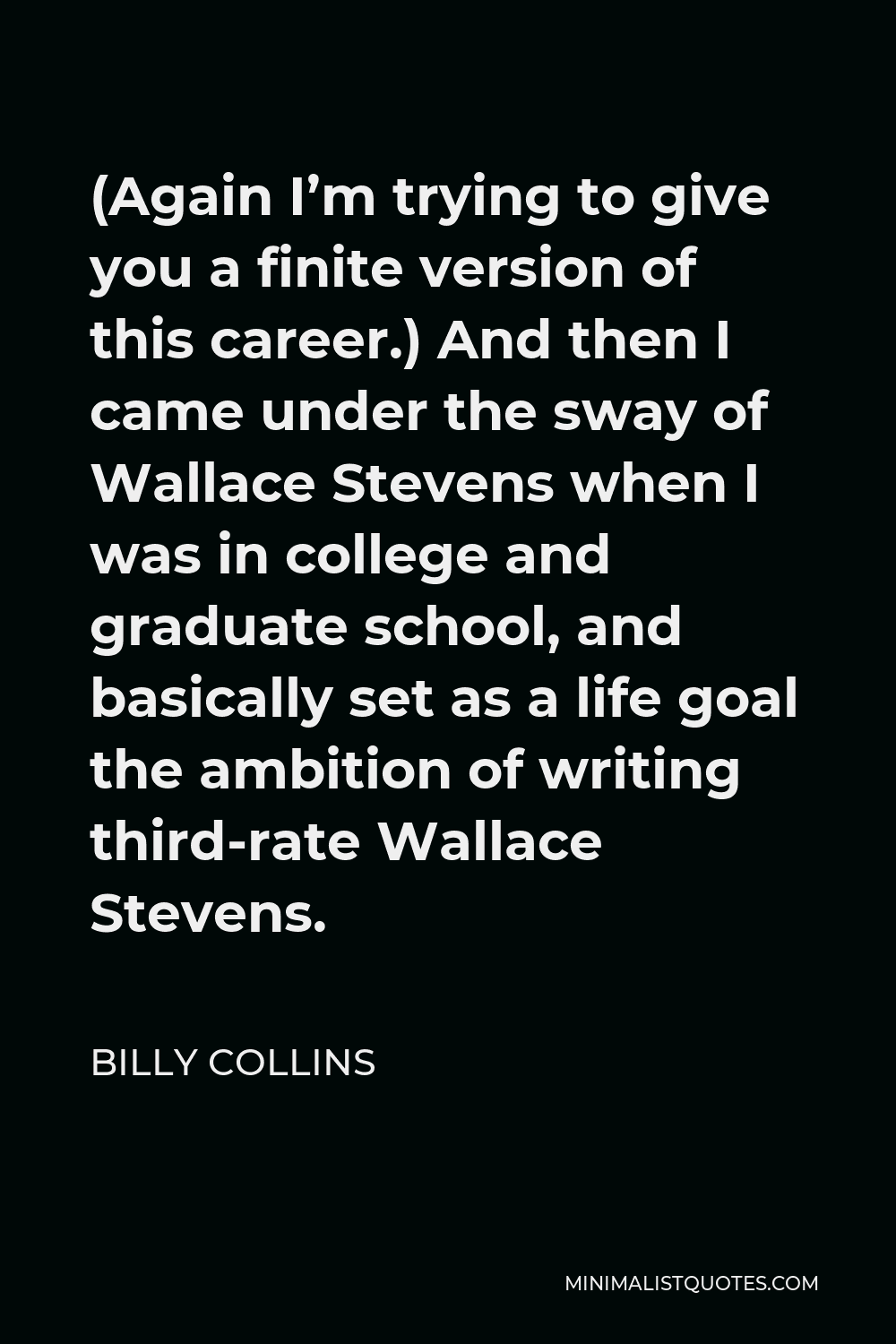
(Again I’m trying to give you a finite version of this career.) And then I came under the sway of Wallace Stevens when I was in college and graduate school, and basically set as a life goal the ambition of writing third-rate Wallace Stevens.
BILLY COLLINS -





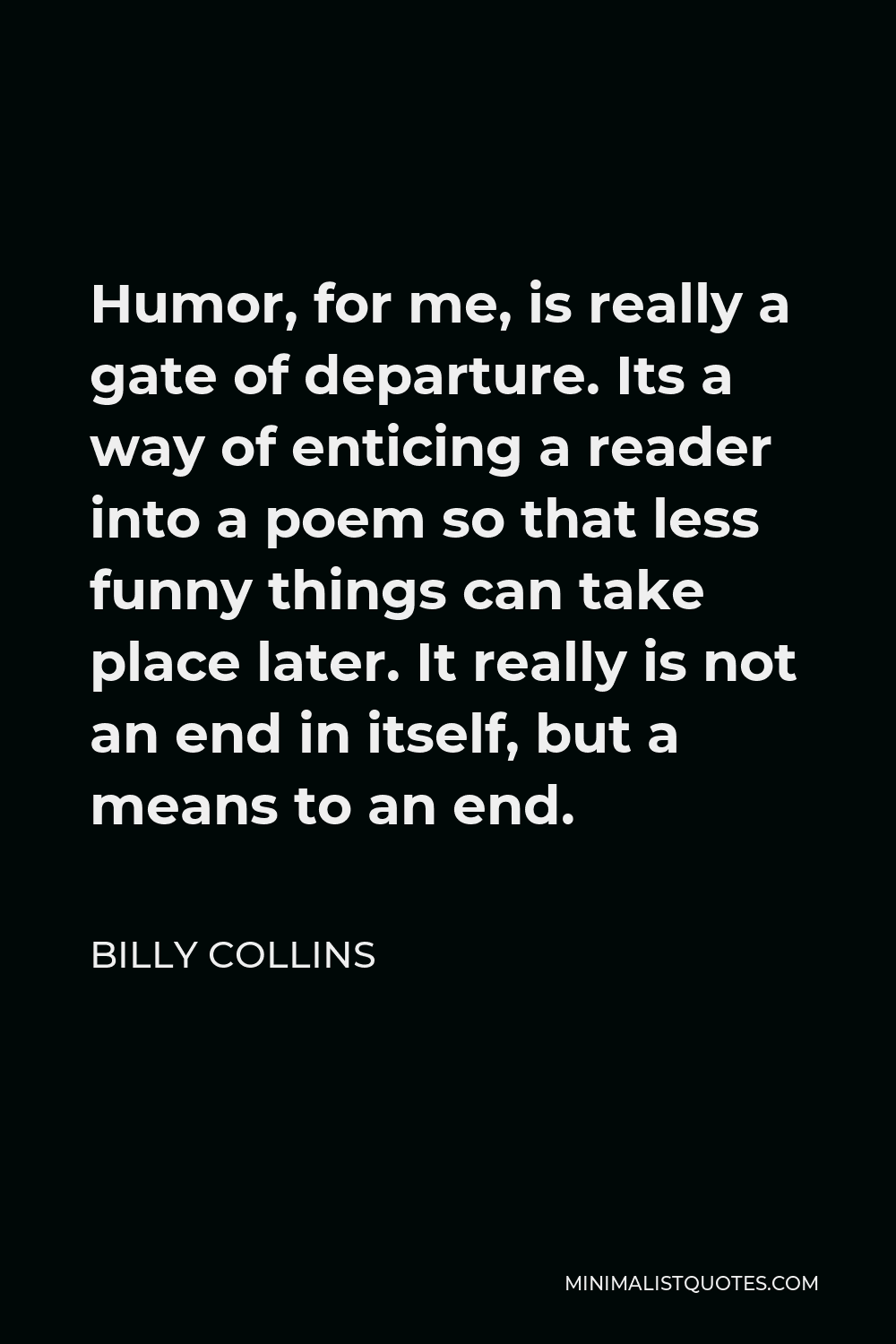
Humor, for me, is really a gate of departure. Its a way of enticing a reader into a poem so that less funny things can take place later. It really is not an end in itself, but a means to an end.
BILLY COLLINS -





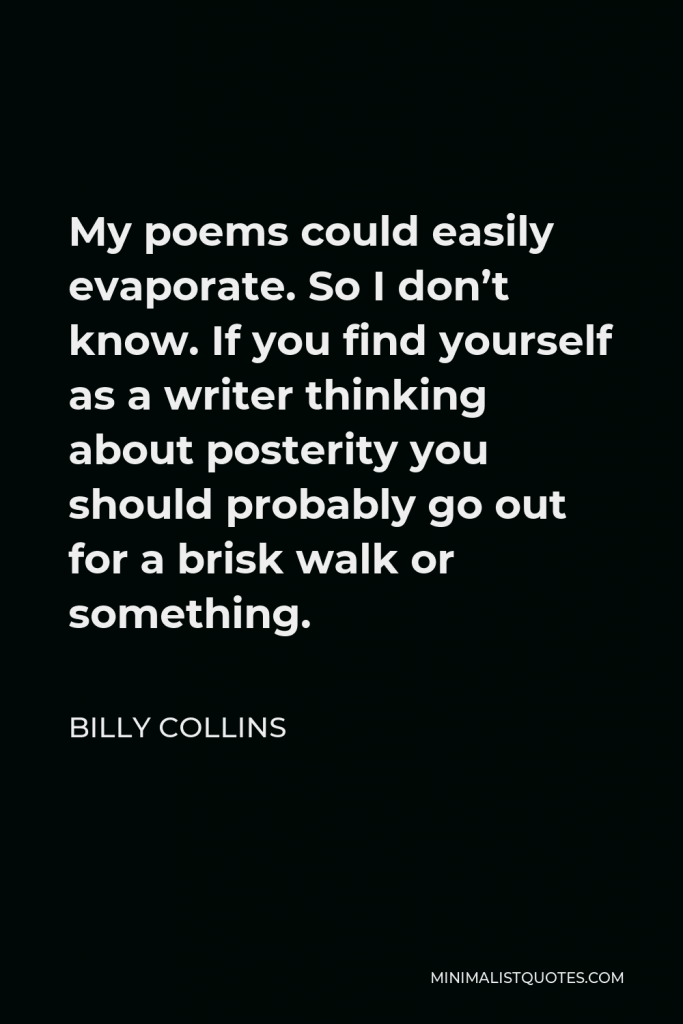

My poems could easily evaporate. So I don’t know. If you find yourself as a writer thinking about posterity you should probably go out for a brisk walk or something.
BILLY COLLINS -





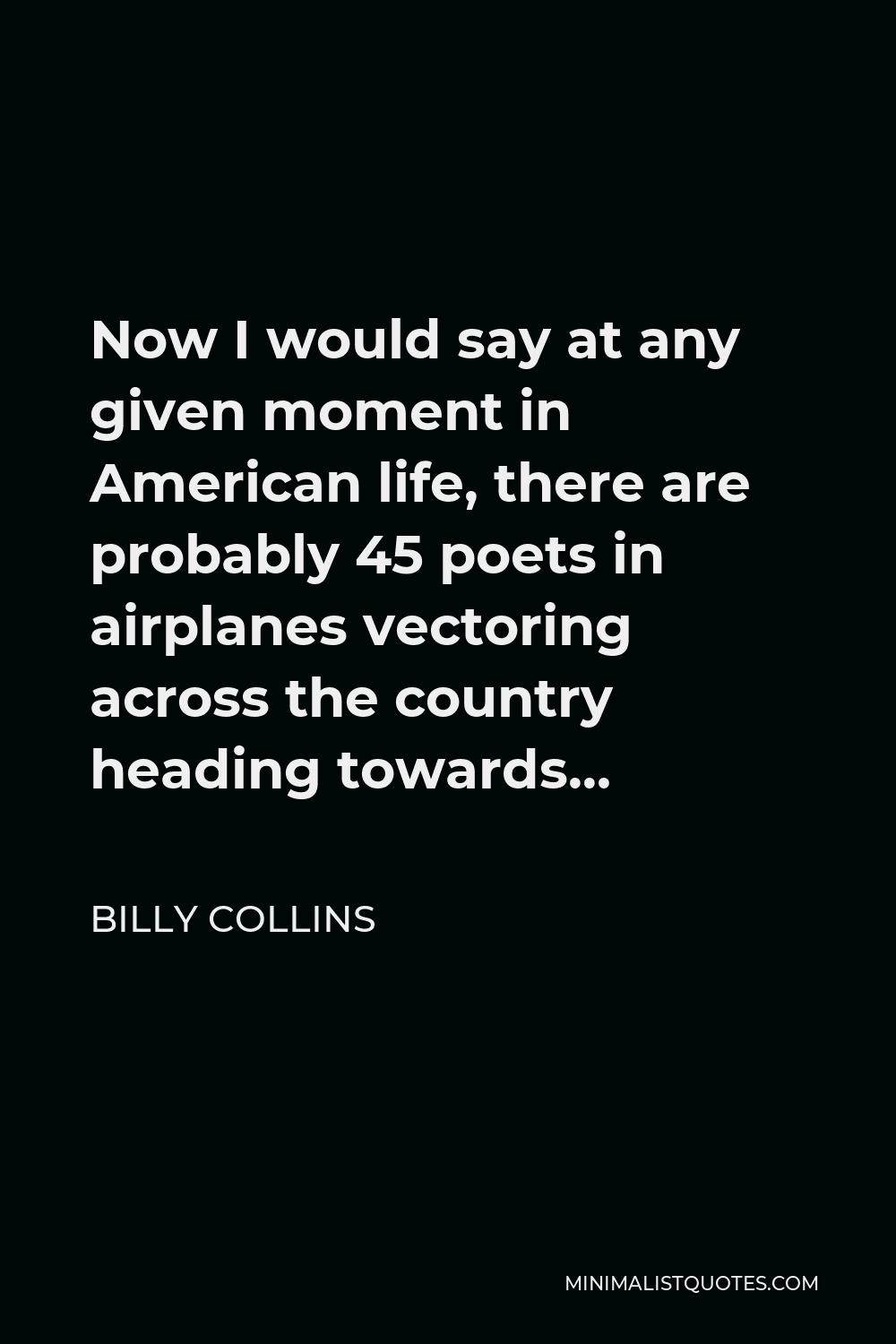
Now I would say at any given moment in American life, there are probably 45 poets in airplanes vectoring across the country heading towards…
BILLY COLLINS
